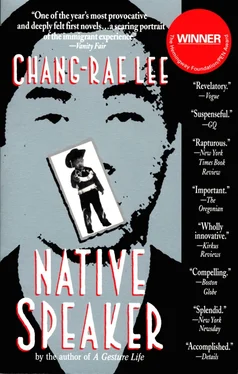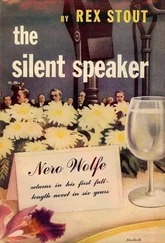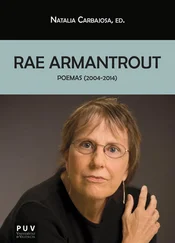“Thanks so much, Jack.”
“Let me say something before I go, Parky. Sometimes you should look closer to home. If something is funny then look there. This is my advice to you. And I will tell you one more thing. If you cannot trust me there is nobody.”
“God bless me then, Jack.”
“Bless you then,” he says.
I walk quickly back to the ruined building. “Hey, Henry,” Sherrie says, calling me over to her car. “I need you to write a summary of this for John. Not right now, just give it to him by tonight. We need everyone now to move the essentials over to his house in Woodside. We’re going to work out of the basement. I’ve sent Janice over already. You know where the house is?”
I shouldn’t know, but I do.
“Good,” she says. “You know, I’m sorry. I know you worked with Eduardo. I liked him a lot.”
I nod.
“Here,” she says, reaching into her bag. She hands me a thick white envelope bound with a red sash. “John wants you to give this to his family. This is important to him. He trusts you with doing this.”
“Don’t worry.”
“Thanks,” she says. “John wants to bring it himself, but the papers might take it the wrong way if they found out, you know what I mean?”
“I understand,” I say.
“Good,” she says, squeezing my arm. “I appreciate this. It’s good to work with other Asians, you know? You don’t have to explain yourself.”
“Right.”
“Right,” she says. “Oh, and you better call home, too. I know it’s Saturday, but we’re probably going to work all night. Help pack up here and then ride over with Jenkins in the van. I’ll see you there later.”
Sherrie smiles and handles my arm again, the ball of my shoulder. I put the money away inside my jacket. She goes back to directing the mess, managing the people traffic. They all listen to her, heed her. The whole office likes her. But I find the touching strange. From someone else, for instance Janice, the contact would simply be casual, friendly, just a kind of parlance, formless, easy talk. But from Sherrie the touch is different. It’s not sexual and not sisterly. It calls on that very minor power we can have over each other, that exercise of influence and duty which we know from our families, our fathers. Our cousin blood. That age-old weakness of brethren you always root out and you always use.
* * *
The Fermins are caretakers of their tenement building. They live on the ground floor next to the elevator, and even inside their apartment you can hear the tired heave of cables running in the shaft, the up and down shouts of little kids who need to pee. Mrs. Fermin recognizes me immediately and opens the steel door. I tell her my name, who I am. She cups my hand and tries to smile. She leads me through a dim half-corridor and gestures to the sofa. She says cerveza and I say yes. Her husband sits on one end of the frilly sofa, half asleep from the long night, half mourning. He’s too weak to acknowledge my presence. He’s not crying, he’s not doing anything. I sit down on the other end. They’ve drawn the blinds and it’s almost completely dark. Mrs. Fermin comes back from the kitchen and hands me a can of Budweiser and sits in a dining chair with a can for herself. We drink in silence. The other children aren’t here, even the young boy, but the grandmother is. She’s chopping in the kitchen and the apartment air is oniony, sharp, and she’s speaking to herself over and over in a rhythm that sounds like the Lord’s prayer.
The whole room is set up with pictures of Eduardo. Seeing his parents, I realize he was a very handsome young man. Sometimes you have to meet the parents to figure out what someone really looks like. In their many pictures Eduardo is a baby, he’s a black bear for Halloween, he’s a bristling Golden Glover, he’s in a suit that’s too big. He sports a downy prideful adolescent moustache. He stands arm in arm with John Kwang. And what I see is that most of the pictures are already hung, part of a permanent collection, that this room has always been a kind of family chapel to their son.
Mrs. Fermin smiles at me and says very softly, very gently, “What d’you wan, Mr. Park?”
I say I’ve come on behalf of John Kwang, that I’ve brought something for her family from him. I tell her that he doesn’t want his gift to be publicly recognized, that she should accept it and use it for her family, but then Mrs. Fermin waves her hands and shakes her head saying, “Slow, slow.” She tries to say something to me, but she’s being too careful and nothing can come out. She speaks quickly to her husband in Spanish but he just responds, “Ay, Carmelina,” and buries his head in the crook of his arm.
I stop talking and take out the envelope. I give it to her, for some reason, in the formal Korean way, with my eyes down and my free hand guiding my extended wrist. Maybe I think Kwang would do it like this, want it done like this.
She steadies her can of beer on the carpet and places the envelope in her wide lap. I get up to go but she wants me to stay. The grandmother comes out to look at the package. Mrs. Fermin slowly unties the red ribbon, lifting the folds of the heavy paper until they petal out to show the bright color of the neatly stacked money. Mrs. Fermin can’t touch the money. She lifts up the bundle by the paper and carries it to me. She can’t speak, she doesn’t know what to do. I count it for her. There are a hundred $100 notes in the stack, and the bills are brand new, they rustle on touch and stick to one another.
The grandmother rushes up and snatches the money away from me and disappears to the back end of the apartment. We can hear her madly opening closet doors, drawers, boxes. She’s hiding all the money. Mrs. Fermin starts weeping in her chair. Her husband still hasn’t moved.
“You know, he helpin Eduardo always,” she now says, wiping her eyes with her sleeve, rocking. “Mr. John Kwang. He helpin Eduardo go law school. Before Mr. Kwang, Eduardo doin too many jobs, this and that, this and that. Now, me Eduardo, he gon make everyone happy. Jus like Mr. Kwang. Eduardo gon make everyone happy and rich. He’s a beautiful boy.”
She brings me an album of pictures. We look at pictures together, and she keeps talking about him. I know what she means, despite her tenses. She’s not acting out, acting crazy. I know this Mrs. Fermin. Half the people in Queens talk like her. Half the people I knew when I was a child. And I think she’s saying it perfectly, just like she should. When you’re too careful you can’t say anything. You can’t imagine the play of the words in your head. You can’t hear them, and they all sound like they belong to somebody else.
Mrs. Fermin gestures for me to follow her to the back of the apartment, to his bedroom. We pass a closed door, behind which the grandmother waits for me to leave. Eduardo shared a small one-window room with his little brother, Stevie. They each have a twin bed with matching bedspreads that Stevie picked out, full of space shuttles and star stations. There are two of the same chipboard desk, the size too small for Eduardo and maybe too big for Stevie; Eduardo’s boxing trophies, a line of aluminum baseball bats, posters of Latin pop groups and singers. Mrs. Fermin shows me a picture frame inset with Eduardo’s ninth-grade report card. Straight A’s.
“After some more times, we don’ do agayn,” she says. “No more frames.”
She shows me pictures of his girlfriend, Arabel, who likes the color pink and carnations and who said she was going to be his wife. She shows me his ribbons and medals from Lucky Meier’s Gym of Champions, and she shows me three shoe boxes stuffed with commendations, certificates of merit, honorable mentions, a plaque from the Latino League of New York’s Father-Son Day, for what I can’t tell, she shows me a dozen other mementos of her three men, whom she has all known as boys and will forever love that way, their first charm and vulnerability, and she shows me a yellow silken bird of the islands, the one that augurs mercy and good tidings, which now falls off its perch on the post of Stevie’s tidy bed.
Читать дальше












